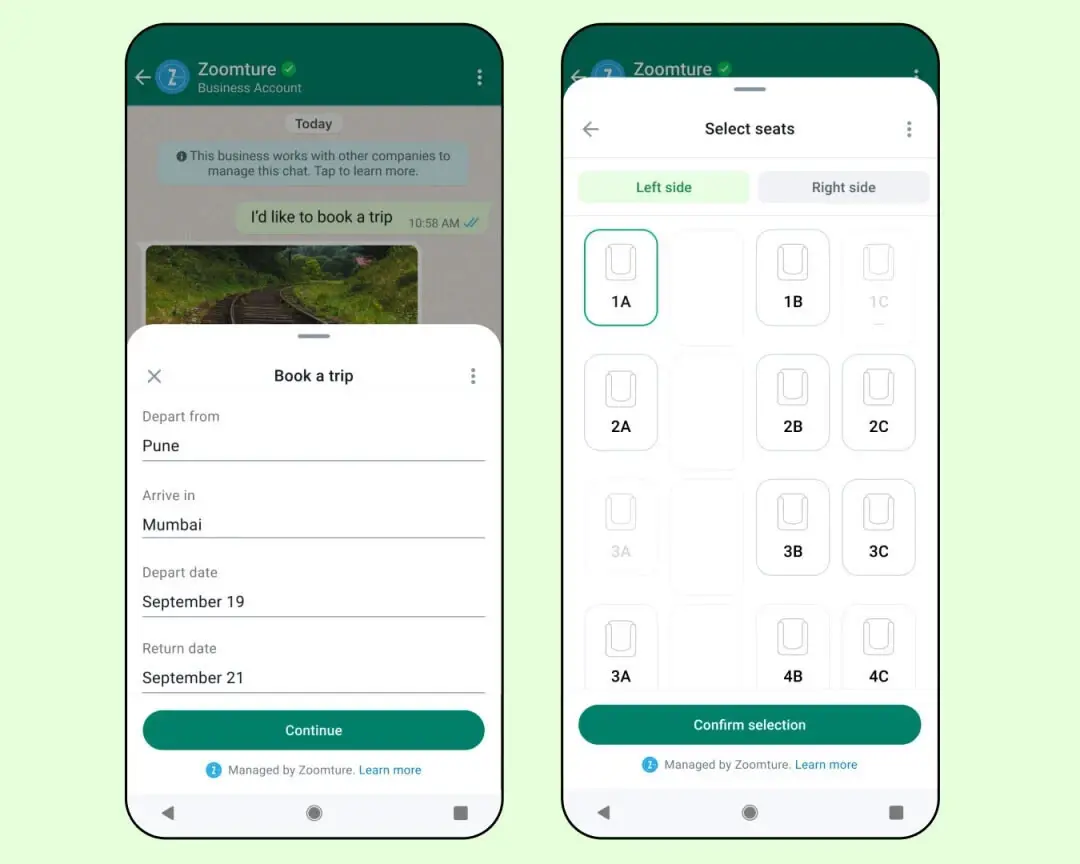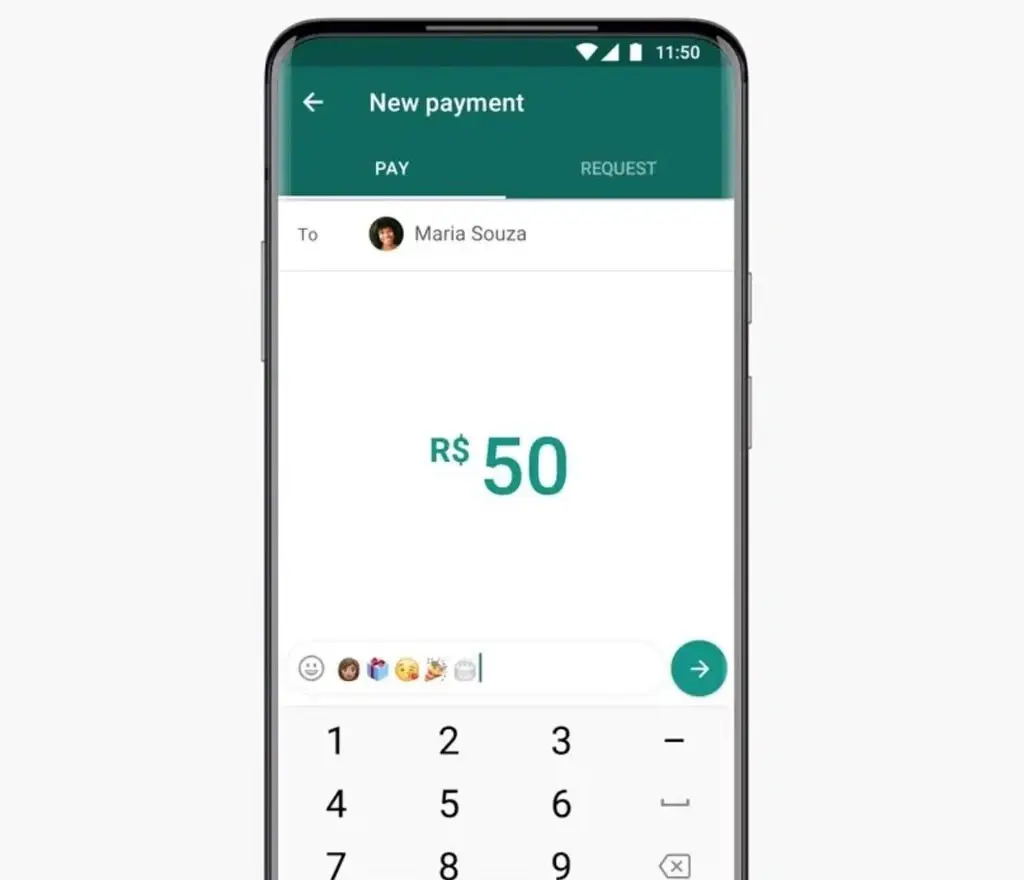In the tech world, the battle for supremacy often plays out on multiple fronts, and one of the most intriguing battles today is the race to create the ultimate superapp. While Mark Zuckerberg and Elon Musk may not be directly squaring off, their respective companies are engaged in a fierce competition within the app store. Musk aims to transform Twitter into a superapp, now named X, while Zuckerberg has quietly been steering WhatsApp on a path to superapp status. In this article, we’ll explore the concept of superapps and trace WhatsApp’s subtle but significant journey towards becoming one.
The Rise of Superapps
The term “superapp” has gained prominence recently, largely due to Elon Musk‘s ambitions to turn Twitter into one. Superapps are essentially applications that offer a wide range of services, evolving into self-contained ecosystems. In Asia, giants like WeChat and Grab exemplify this concept. WeChat, primarily a chat app, integrates “mini-apps” for various purposes, including payments, shopping, and utility bill payments. In contrast, in Europe, Google and Apple have created ecosystems that fall short in the messaging department. Google struggles with its messaging apps, and Apple’s iMessage remains confined to its ecosystem.
For both Musk and Zuckerberg, the transformation of their messaging apps holds clear advantages. Messaging apps traditionally generate minimal revenue, making them ripe for monetization through added services. However, becoming a superapp is a massive undertaking that allows room for only one or two dominant contenders.
WhatsApp’s Long Journey to Superapp Status

The desire of Facebook (now Meta) to harness WhatsApp’s potential was evident from the moment they acquired the platform in 2014 for a staggering $19 billion. It became clear that recouping such a hefty investment from subscriptions costing less than a euro per year was virtually impossible. Consequently, just a year after the acquisition, WhatsApp abolished its subscription fees, officially becoming a free application. In exchange, it signaled its intention to open up to businesses, offering users the ability to chat with them. While users might not pay, businesses likely would.
By 2017, WhatsApp had begun introducing customer service features, and the following year, WhatsApp Business and its API were launched, signaling WhatsApp’s ambition to be more than just a messaging app. WhatsApp Business has since evolved, allowing companies to create virtual stores and offer customer support. Users can now buy products and make arrangements without leaving the app they use to chat with friends.
With business interactions becoming a focal point, WhatsApp has worked to expand the boundaries of communication. The platform encourages users to interact with people beyond their immediate circles, fostering increasingly large groups, user communities, and channels. For WhatsApp to become an all-encompassing superapp, it must cater to interactions with individuals beyond just your contacts.
However, the most significant transformation occurred recently with the introduction of purchase flows and payment methods. WhatsApp is gearing up to facilitate various transactions, from buying train tickets to reserving restaurant tables or purchasing groceries. This, combined with continuous improvements to the API for businesses, provides companies with a more comprehensive toolkit to engage potential customers through WhatsApp.
A Timeline of WhatsApp’s Subtle Evolution
To understand how WhatsApp has gradually evolved into a superapp, let’s take a closer look at its key milestones:
- 2009: WhatsApp initially launched as an app for iPhone contacts’ statuses but quickly transitioned into a messaging app for chatting with friends and acquaintances saved in your contact list.
- 2016: WhatsApp dropped its subscription fee, becoming a free app. The same year, under Facebook’s ownership, it announced its intention to facilitate communication with businesses.
- 2017: WhatsApp introduced its first bots, integrating customer service for airlines like KLM and Aeromexico, which were already available on Facebook Messenger.
- 2018: Facebook launched WhatsApp Business and the APIs for the WhatsApp Business Platform, initially focusing on chat messages and company profiles.
- 2020: WhatsApp Business improved with the introduction of product catalogs for easy shopping. WhatsApp also initiated its attempt to enable peer-to-peer money transfers in Brazil and announced WhatsApp Pay, a payment system.
- 2021: WhatsApp launched a directory of nearby businesses with WhatsApp Business profiles.
- 2022: WhatsApp introduced communities as a way to interact in larger groups, while ensuring the privacy of phone numbers. In India, WhatsApp allowed users to shop at the JioMart supermarket and book metro tickets through the app.
- 2023: The introduction of channels as a one-way communication mode marked a significant step, as WhatsApp opened up to various shopping experiences through new purchase flows and payment methods.
WhatsApp’s Superapp Arsenal

WhatsApp has quietly integrated a wide array of features, transforming into a superapp without drawing much attention. Here’s a snapshot of what WhatsApp now offers:
Gizchina News of the week
- Messaging: Personal and group chats, calls, and video calls.
- Community Engagement: Communities and groups with a large number of members, expanding interactions beyond personal circles.
- News: Channels that provide news and updates.
- Financial Transactions: The ability to send money between individuals.
- Shopping: Purchasing from small businesses via WhatsApp, complete with product catalogs.
- Business Directory: Finding local companies with WhatsApp Business profiles.
- Customer Support: Contacting customer service for businesses and organizations.
- Grocery Shopping: Shopping for groceries through platforms like JioMart.
- Payments: Initiating payments directly within the app.
- Travel and Booking: Booking flights, hotels, tickets, and more.
The Benefits of Superapps
Superapps offer a number of benefits to users and businesses. For users, superapps are convenient and efficient. They can access a wide range of services through a single app. This saves them time and effort.
For businesses, superapps offer a way to reach a large audience and build relationships with customers. Superapps also provide businesses with a platform to sell their products and services.
The Challenges of Building a Superapp
Building a successful superapp is not easy. There are a number of challenges that companies need to overcome.
First, superapps need a massive user base. In order to be successful, superapps need to be able to offer a wide range of services and features. This requires a lot of users.
Second, superapps need to be able to integrate a wide range of services into a single app. This can be a complex and challenging task.
Third, superapps need to be able to protect user privacy and security. Superapps collect a lot of data about their users. This data needs to be protected from unauthorized access.
The race between Mark Zuckerberg and Elon Musk to build the ultimate superapp:
- Zuckerberg has the advantage of incumbency. WhatsApp is already one of the most popular apps in the world, with over 2 billion active users. This gives Zuckerberg a large and engaged user base to build on.
- Musk has the advantage of vision. Musk has a clear vision for Twitter’s future as a superapp. He has said that he wants to make Twitter more open and free, and he is willing to invest heavily in new features and services.
- Both Zuckerberg and Musk face challenges. Zuckerberg needs to convince users that WhatsApp is a safe and reliable platform for a wide range of services. Musk needs to figure out how to generate revenue from Twitter without alienating its users.
It is too early to say who will win the race to build the ultimate superapp. However, it is clear that Zuckerberg and Musk are both determined to win.

The potential implications of super apps for society:
- Superapps could make our lives more convenient and efficient. By integrating a wide range of services into a single app, superapps can save us time and effort. For example, we could use a superapp to book a flight, order a taxi, and check into our hotel all from the same app.
- Superapps could make it easier for businesses to reach customers. Superapps offer businesses a platform to sell their products and services to a large audience. For example, a small business could use a superapp to create a profile and start selling its products to customers all over the world.
- Superapps could increase our reliance on technology. Superapps could make us more dependent on our smartphones and other devices. This could have negative consequences for our mental and physical health.
- Superapps could raise privacy and security concerns. Superapps collect a lot of data about their users. This data could be used by businesses for targeted advertising or by governments for surveillance.
Conclusion
WhatsApp’s transformation into a superapp has been gradual but relentless. With a massive user base and an expanding set of features, it’s quietly positioning itself as an all-encompassing platform for communication, commerce, and more. While the battle for superapp supremacy rages on, WhatsApp’s subtle evolution demonstrates that it’s well on its way to becoming a one-stop destination for users’ diverse needs. As the competition heats up, it remains to be seen whether WhatsApp can ultimately emerge as the dominant superapp in the global arena.





